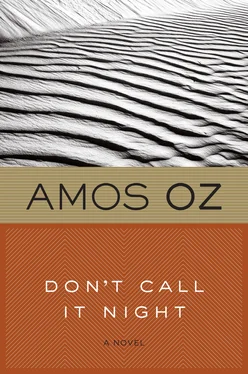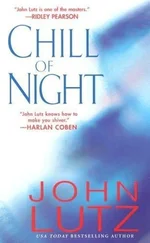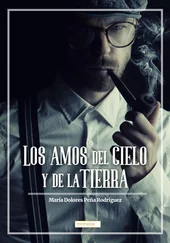Amos Oz - Don't Call It Night
Здесь есть возможность читать онлайн «Amos Oz - Don't Call It Night» весь текст электронной книги совершенно бесплатно (целиком полную версию без сокращений). В некоторых случаях можно слушать аудио, скачать через торрент в формате fb2 и присутствует краткое содержание. Год выпуска: 1997, Издательство: Mariner Books, Жанр: Современная проза, на английском языке. Описание произведения, (предисловие) а так же отзывы посетителей доступны на портале библиотеки ЛибКат.
- Название:Don't Call It Night
- Автор:
- Издательство:Mariner Books
- Жанр:
- Год:1997
- ISBN:нет данных
- Рейтинг книги:4 / 5. Голосов: 1
-
Избранное:Добавить в избранное
- Отзывы:
-
Ваша оценка:
- 80
- 1
- 2
- 3
- 4
- 5
Don't Call It Night: краткое содержание, описание и аннотация
Предлагаем к чтению аннотацию, описание, краткое содержание или предисловие (зависит от того, что написал сам автор книги «Don't Call It Night»). Если вы не нашли необходимую информацию о книге — напишите в комментариях, мы постараемся отыскать её.
Notable Book of the Year
“A rich symphony of humanity. . If Oz’s eye for detail is enviable, it is his magnanimity which raises him to the first rank of world authors.” —
(UK)
At Tel-Kedar, a settlement in the Negev desert, the longtime love affair between Theo, a sixty-year-old civil engineer, and Noa, a young schoolteacher, is slowly disintegrating. When a pupil dies under difficult circumstances, the couple and the entire town are thrown into turmoil. Amos Oz explores with brilliant insight the possibilities — and limits — of love and tolerance.
“Vivid, convincing, and haunting.” —
Don't Call It Night — читать онлайн бесплатно полную книгу (весь текст) целиком
Ниже представлен текст книги, разбитый по страницам. Система сохранения места последней прочитанной страницы, позволяет с удобством читать онлайн бесплатно книгу «Don't Call It Night», без необходимости каждый раз заново искать на чём Вы остановились. Поставьте закладку, и сможете в любой момент перейти на страницу, на которой закончили чтение.
Интервал:
Закладка:
There are three more members of the team, apart from me: Malachi Peleg (known to the whole town as Muki), Ludmir, and Linda Danino. Linda is an asthmatic divorcee, an art lover; she volunteered for the team so as to be near Muki. Her contribution is typing on a word processor. Muki Peleg came because of me: he would have joined even if I had been setting up a finishing school for carrion crows. As for Ludmir, a retired employee of the electricity company, he is a rambunctious member of a number of protest committees: an enemy of the quarries and the discotheque, denouncer of defective signposting, and writer of an impassioned weekly column under the title "A Voice in the Wilderness" in the local paper. He roams around the town in summer in a pair of baggy khaki shorts, with battered flip-flops on his veiny, sun-browned feet, and every time he sees me he greets me by saying, There's Noa smoke without a fire, and then apologizes with a smile: Don't take offence, my lovely, I was only joking.
In practice I have all the responsibility. I've been caught up in it for several weeks now: running around the southern offices of the Departments of Social Security, Health and Education, tugging at the sleeve of the League Against Drug Abuse, besieging the Agency for Young People in Distress, coaxing the Parents' Committee and the Education Committee, begging the Development Agency, responding to the local paper and chasing after the Mayor, Batsheva, who has so far refused even to put the idea on the agenda. I've been four times to Jerusalem and twice to Tel Aviv. Once a week I make the pilgrimage to the regional government offices in Beersheba. Here in Tel Kedar friends and acquaintances have taken to eyeing me with a sort of worried irony. In the staff room they say, What do you want with all this extra bother, Noa? What's biting you? Anyway, nothing'll come of it. I answer: We'll see.
I have no complaint against these friends and acquaintances. If one of the other teachers suddenly started agitating to set up, let's say, a laboratory for infectious diseases here, I suspect I'd be bewildered or angry myself. Meanwhile, the Mayor shrugs her shoulders, the Workers' Council is noncommittal, the parents are hostile, Muki Peleg keeps trying to distract me with his stories about what women give him or the things only he knows how to give a woman, and Ludmir coaxes me to join the campaign to close the quarries as well. In the public library the librarian has collected all the literature on treating addiction on a special shelf for me. Somebody has stuck a label on the shelf: Reserved for Noa the Addict.
Theo keeps his mouth shut because I've asked him to.
As for me: I'm learning.
5
IT is a small, new town with eight or nine thousand inhabitants. The first thing to be built were rectangular quarters to house the families of servicemen from the military bases. In the seventies there were some encouraging drillings in the vicinity, and the decision was taken to create a town. These drillings subsequently turned out to be disappointing, and the plans were put on hold. The principal thoroughfare, Herzl Boulevard, is ambitiously laid out: six lanes extending along the barren ridge of a rocky desert plateau, separated by flower beds containing red earth brought from far away, planted with palm trees that are shaken by the strong winds. On either side of the boulevard, inside iron cages wrapped with sackcloth for protection against the sandstorms, poinciana saplings fed by a drip system look as though they are still uncertain whether there is any point in their existence. From this main boulevard some fifteen identical streets, named after presidents and prime ministers, branch off to east and to west. Each street contains a row of green street lamps and matching green municipal benches set out at regular intervals. There are mailboxes and a bus station and signs indicating pedestrian crossings, even though the traffic is sparse.
The ornamental gardens are forlorn on account of the wind that comes gusting in from the desert, lashing them with dust, despite which meagre lawns subsist in front of some buildings, along with a few oleanders and rose bushes. The buildings themselves are eroded by the heat and the wind. Four- and six-storey apartment blocks stand in rows, with front balconies closed in with cement blocks or aluminum-framed sliding windows. They were originally coated with white plaster, but their colour now is a murky grey: year by year the plaster grows closer to the colours of the desert, as though by assimilating to those colours it can assuage the fury of the light and dust. Solar panels gleam on every roof, as if the town were trying to appease the sun's blaze in its own language.
There are wide gaps between the apartment blocks. Perhaps years ago a heat-dazed planner laid out a garden suburb, with spaces left for parks and garden plots, with patches of fruit trees intended to blossom between the buildings. Meanwhile, these empty plots are strips of desert dotted with heaps of junk and a few bushes straddling the line between plants and inanimate objects. There are also a few eucalyptus trees and tamarisks, blighted by droughts and salty wind, hunched towards the east like fugitives turned to stone in mid-flight.
On the north-west of the town stretches the chic residential district, containing a hundred individual houses. Most of them exploit the slope so as to enjoy several levels. There are no flat, tar-coated roofs here, but red tiles turning grey summer by summer. There are some wooden houses built in Swiss-chalet style, interspersed with others in Italian or Spanish idiom, in a reddish stone brought from the mountains of Galilee, with projections, surrounds and arches, rounded windows and even weathercocks on the gables, sighing for forests and meadows in this desert. This is where the better-off residents live, professional people, regular army officers, managers, engineers and senior technicians.
On the opposite side, to the south-east; in a long narrow valley, stretches a potholed road invaded by shifting sands. Along this road there are ceramic and metal works, a small washing-machine factory and, after that, workshops, garages, depots, corrugated-iron huts and cement-block sheds, and structures without foundations constructed of blocks of bare concrete and planks. All kinds of workshops proliferate here: locksmiths, carpenters, electricians, bodywork shops, aerials, television repairs, plumbing and solar water-heaters. The sheds are separated by barbed wire that has collapsed and rusted and been buried by the sand. The dust at the entrances is thick with engine oil and grease. All through the summer there is a smell of stale urine and burning rubber. The sun blazes down harshly on everything. Further down the hill is a dumping ground for old vehicles and then the municipal cemetery. Here the road ends opposite a row of cliffs crowned with a double wire fence. It is said that on the other side there is a forbidden valley containing secret installations. Beyond this valley there is another row of dark cliffs pierced with caves and crannies. That is the hiding-place of the ibexes that occasionally appear on the horizon and descend towards the curtain of the evening twilight; that too is where the foxes have their dens and the scorpions and asps their holes. And, further still, are expanses of chalky boulders and slate slopes scarred by gullies and deposits of dark scree extending to the edge of the barren mountains, which are sometimes shrouded in shimmering haze and sometimes seem blue in the distance like a mirage of clouds rising from an invisible sea to which they will soon return.
Six times a day the bus arrives from Beersheba and stops outside the shopping centre, in the square that is popularly referred to as "by the lights", although its real name is Irving Koshitsa Square. Here the passengers from Beersheba alight, and the driver disappears into the California for twenty minutes for a cappuccino and a smoke while the passengers travelling to town gather at the bus stop. Opposite the square is an unpaved parking lot, from which the fine grey dust that settles like a veil on the shops, restaurants and offices constantly billows. The square is enclosed by four multi-storey buildings in the style of the coastal plain, two banks, the renovated Paris Cinema, a number of cafés that double as restaurants, and a run-down billiard hall that also sells tickets for the national lottery. Within the area defined by these structures is a square expanse paved with alternating red and grey tiles. In the centre of the square is a column of bare concrete in memory of the fallen. Four cypress trees have been planted at the four corners of the monument. One of them has died. On the column are inscribed in metallic letters the words THE BEAUTY OF ISRAEL IS SLAIN UPON THY HIGH PLAC S. The penultimate letter is missing. Beneath is fixed a tablet in the form of the tablets of the Law bearing twenty-one names, from Aflalo Yosef to Shumin Giora Georg. The tablet is cracked right across, and bindweed is growing in the crack. Beside the monument is a drinking fountain made of concrete, inscribed in Hebrew and English with the biblical verse, HO, EVERYONE THAT THIRSTETH, COME YE TO THE WATERS — ERECTED IN MEMORY OF DONIA AND ADALBERT ZESNIK, 1983. Three faucets curve down towards the basin: two of them are weeping.
Читать дальшеИнтервал:
Закладка:
Похожие книги на «Don't Call It Night»
Представляем Вашему вниманию похожие книги на «Don't Call It Night» списком для выбора. Мы отобрали схожую по названию и смыслу литературу в надежде предоставить читателям больше вариантов отыскать новые, интересные, ещё непрочитанные произведения.
Обсуждение, отзывы о книге «Don't Call It Night» и просто собственные мнения читателей. Оставьте ваши комментарии, напишите, что Вы думаете о произведении, его смысле или главных героях. Укажите что конкретно понравилось, а что нет, и почему Вы так считаете.












